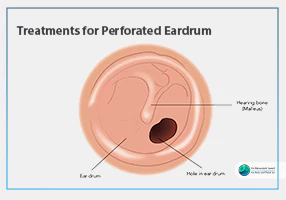What to Eat After Thyroid Surgery: A Comprehensive Guide to Nutrition and Recovery
Thyroidectomy, the surgical removal of all or part of the thyroid gland, is a critical procedure for treating conditions such as thyroid cancer, goiter, hyperthyroidism, or benign nodules. Post-surgery, your body undergoes significant changes, and a well-planned diet is essential to support healing, manage side effects, and maintain long-term health. This comprehensive guide covers everything you need to know about nutrition after thyroidectomy, including recommended foods and drinks, dietary tips for specific needs, and strategies to optimize recovery and well-being.
Why Nutrition Is Crucial After Thyroidectomy
After thyroid surgery, your body requires targeted nutrition to address several post-surgical challenges:
- Healing the surgical site: Nutrient-rich foods promote tissue repair and reduce the risk of infection.
- Easing throat discomfort: Sore throat or difficulty swallowing is common, making soft, smooth foods a priority.
- Preventing constipation: Pain medications and reduced physical activity can slow digestion, necessitating fiber and hydration.
- Maintaining calcium levels: If parathyroid glands are affected, dietary calcium and vitamin D are vital to prevent symptoms like tingling or muscle cramps.
- Supporting thyroid hormone replacement: For those on medications like levothyroxine, proper nutrition ensures optimal drug absorption and metabolic balance.
- Promoting energy and mood: A balanced diet helps combat fatigue and supports mental health during recovery.
This guide provides detailed recommendations for the early recovery phase (first 1–4 weeks) and long-term nutrition, tailored to various needs and lifestyles.
Hydration: Best Drinks for Post-Thyroidectomy Recovery
Proper hydration is a cornerstone of recovery, as it soothes the throat, aids digestion, and supports overall healing. Here are the best drink options and tips for staying hydrated:
- Cold and soothing beverages: Ice-cold water, chilled herbal teas (e.g., chamomile, licorice root, or peppermint), or flavored ice pops can reduce throat swelling and discomfort. Avoid caffeinated drinks like coffee or soda, as they may dehydrate or irritate the throat.
- Nutrient-packed smoothies: Blend fruits (e.g., berries, bananas), leafy greens (e.g., spinach), and a protein source (e.g., Greek yogurt, almond butter, or protein powder) with a liquid base like almond milk or coconut water. For example, try a smoothie with mango, kale, yogurt, and a splash of orange juice for a vitamin C boost.
- Thicker liquids for swallowing issues: If thin liquids cause coughing or choking, opt for thicker options like milkshakes, fruit purees, or protein shakes. A banana and peanut butter shake with oat milk is a great choice for calories and comfort.
- Electrolyte-enhanced drinks: If blood calcium levels are low (a risk if parathyroid glands are affected), your doctor may recommend low-sugar electrolyte drinks fortified with calcium and magnesium. Avoid sports drinks high in sugar or artificial additives.
- Bone broth: Warm (not hot) bone broth provides hydration, protein, and minerals like calcium, making it an excellent choice for early recovery.
Tips for Hydration:
- Aim for 8–12 cups (2–3 liters) of fluids daily, depending on your activity level and doctor’s advice.
- Sip slowly to avoid straining the throat, and avoid straws, as they may increase discomfort.
- Check with your doctor before consuming herbal teas, as some (e.g., licorice root) may affect blood pressure or interact with medications.
- If you’re on radioactive iodine therapy (RAI) post-surgery, follow your doctor’s guidance on fluid intake to support treatment.
Best Foods to Eat After Thyroidectomy
 Your diet in the weeks following thyroidectomy should prioritize foods that are easy to swallow, nutrient-dense, and supportive of healing. Below, we outline recommended foods for different stages of recovery, along with preparation tips.
Your diet in the weeks following thyroidectomy should prioritize foods that are easy to swallow, nutrient-dense, and supportive of healing. Below, we outline recommended foods for different stages of recovery, along with preparation tips.
Soft and Smooth Foods (Days 1–14 Post-Surgery)
In the first two weeks, focus on foods that require minimal chewing to reduce throat irritation:
- Yogurt and cottage cheese: Plain or low-sugar Greek yogurt and soft cottage cheese are high in protein and probiotics, supporting gut health and muscle repair. Add mashed fruit or honey for flavor.
- Mashed or pureed vegetables: Mashed potatoes, sweet potatoes, or pureed carrots and zucchini are gentle and nutrient-rich. Add a drizzle of olive oil or a pat of butter for healthy fats.
- Scrambled eggs or egg custard: Soft scrambled eggs or baked egg custard provide protein and are easy to swallow. Season lightly with herbs like parsley for flavor.
- Cooked or canned fruits: Applesauce, mashed bananas, stewed pears, or canned peaches (in natural juice) are soothing and rich in vitamins. Avoid citrus fruits like oranges, which may irritate the throat.
- Porridge and soft cereals: Oatmeal, cream of wheat, or rice porridge made with milk or a plant-based alternative provides sustained energy. Add a sprinkle of cinnamon or mashed berries for antioxidants.
- Blended soups: Pureed vegetable soups (e.g., butternut squash, broccoli, or potato-leek) or blended chicken noodle soup are hydrating and nourishing. Avoid tomato-based soups, as their acidity may cause discomfort.
Preparation Tip: Use a blender or food processor to achieve a smooth texture, and serve foods at room temperature or slightly warm to avoid irritating the surgical site.
Foods to Support Digestion (Weeks 1–4 and Beyond)
Constipation is a common side effect of pain medications and reduced mobility. To promote regular bowel movements:
- High-fiber vegetables: Once swallowing improves (around week 2), incorporate steamed or roasted vegetables like broccoli, green beans, or beets. Start with small portions to test tolerance.
- Whole grains: Quinoa, brown rice, or whole-grain pasta provide fiber and sustained energy. Cook them until soft for easier digestion.
- Legumes: Mashed lentils, chickpeas, or black beans are fiber- and protein-rich. Try a blended lentil soup or hummus for variety.
- Fruits with fiber: Prunes, pears, apples (peeled and cooked), and berries are natural laxatives. Prune juice or dried figs can also help.
- Probiotic-rich foods: Kefir, sauerkraut, or kombucha (if tolerated) support gut health and digestion.
Preparation Tip: Gradually increase fiber intake to avoid bloating, and pair with plenty of water (8–10 cups daily). If constipation persists, ask your doctor about fiber supplements like psyllium husk or gentle laxatives.
Calcium-Rich Foods to Prevent Hypocalcemia
 Thyroidectomy may disrupt parathyroid gland function, leading to low blood calcium levels (hypocalcemia), which can cause tingling, muscle cramps, or headaches. To maintain calcium levels:
Thyroidectomy may disrupt parathyroid gland function, leading to low blood calcium levels (hypocalcemia), which can cause tingling, muscle cramps, or headaches. To maintain calcium levels:
- Dairy products: Low-fat milk, cheddar or mozzarella cheese, and Greek yogurt are excellent sources. A 1-cup serving of yogurt provides about 300 mg of calcium (30% of daily needs).
- Fortified non-dairy options: Almond, soy, or oat milk fortified with calcium and vitamin D are great for lactose-intolerant patients. Check labels for at least 200–300 mg calcium per cup.
- Leafy greens: Cooked kale, collard greens, or bok choy are calcium-rich and easier to digest than raw greens. A 1-cup serving of cooked kale provides about 180 mg of calcium.
- Nuts and seeds: Almonds (1/4 cup provides ~100 mg calcium) and chia seeds (2 tbsp provides ~180 mg) are versatile additions to smoothies or oatmeal.
- Fish with bones: Canned sardines or salmon (with edible bones) are calcium powerhouses. A 3-oz serving of sardines offers ~325 mg of calcium.
- Fortified foods: Some cereals, orange juices, or tofu products are fortified with calcium. Choose low-sugar options.
Important Notes:
- Adults typically need 1,000–1,200 mg of calcium daily, but your doctor may recommend more if lab tests show low levels.
- If prescribed calcium or vitamin D supplements, take them 2–4 hours apart from levothyroxine, as calcium can reduce thyroid hormone absorption.
- Vitamin D (from sunlight, fortified foods, or supplements) enhances calcium absorption. Aim for 600–800 IU daily, or as advised by your doctor.
Iodine-Rich Foods (If Recommended)
If you’ve had a partial thyroidectomy and your remaining thyroid tissue is functional, your doctor may suggest moderate iodine intake to support hormone production. Iodine-rich foods include:
- Seafood: Cod, tuna, shrimp, or seaweed (e.g., nori or kelp) are excellent sources. A 3-oz serving of cod provides ~99 mcg of iodine (66% of daily needs).
- Eggs: One large egg contains ~24 mcg of iodine.
- Dairy: Milk and yogurt naturally contain iodine due to fortified animal feed.
- Iodized salt: Use in moderation, as excessive salt can raise blood pressure.
Caution: If you’re on radioactive iodine therapy (RAI) for thyroid cancer, follow a low-iodine diet (avoiding seaweed, iodized salt, and dairy) for 1–2 weeks before treatment, as directed by your doctor.
Foods to Avoid During Recovery
To minimize discomfort and support healing, avoid the following:
- Hard or crunchy foods: Chips, pretzels, raw carrots, or nuts can scratch the throat or strain the surgical site.
- Acidic or spicy foods: Citrus fruits (oranges, lemons), tomatoes, vinegar-based dressings, or chili peppers may cause burning or irritation.
- Caffeine and alcohol: These can dehydrate you, disrupt sleep, or interact with medications.
- High-sugar or processed foods: Candy, pastries, or fast food can cause energy crashes and slow healing.
- Soy products (in excess): Soy milk, tofu, or edamame may interfere with levothyroxine absorption if consumed in large amounts near medication time.
Tip: Keep a food diary to track how your body responds to different foods, especially if you experience digestive issues or throat discomfort.
Sample Daily Meal Plan for Post-Thyroidectomy Recovery
To help you get started, here’s a sample meal plan for the first 1–2 weeks after surgery, focusing on soft, nutrient-dense foods:
- Breakfast: 1 cup Greek yogurt with mashed banana and a sprinkle of chia seeds; chamomile tea (chilled).
- Mid-Morning Snack: 1/2 cup applesauce with a dash of cinnamon; 1 glass of fortified almond milk.
- Lunch: Pureed butternut squash soup with a side of mashed sweet potatoes; 1 scrambled egg.
- Afternoon Snack: A smoothie with spinach, mango, Greek yogurt, and oat milk.
- Dinner: Blended chicken and vegetable soup; 1/2 cup soft oatmeal with stewed pears.
- Evening Snack: 1/2 cup cottage cheese with canned peaches; 1 glass of water.
Notes:
- Adjust portion sizes based on your appetite and doctor’s recommendations.
- Transition to more solid foods (e.g., steamed vegetables, whole grains) after 2–3 weeks, as tolerated.
- Always consult your healthcare provider for personalized advice, especially if you have dietary restrictions.
Long-Term Nutrition After Thyroidectomy
 After the initial recovery period (4–6 weeks), you can gradually return to a normal diet, but long-term nutrition remains critical, especially if you’re on thyroid hormone replacement or have a history of thyroid cancer. Key considerations include:
After the initial recovery period (4–6 weeks), you can gradually return to a normal diet, but long-term nutrition remains critical, especially if you’re on thyroid hormone replacement or have a history of thyroid cancer. Key considerations include:
-
Optimizing Thyroid Hormone Absorption:
- Take levothyroxine on an empty stomach, ideally 30–60 minutes before breakfast or 4 hours after dinner.
- Avoid consuming calcium-rich foods (e.g., milk, yogurt), iron supplements, or high-fiber meals within 2–4 hours of your dose.
- Coffee and grapefruit juice may also reduce absorption, so wait at least 1 hour after taking medication.
-
Balancing Metabolism and Weight:
- Thyroid hormone imbalances can affect metabolism, leading to weight gain or loss. Focus on a balanced diet with:
- Lean proteins: Chicken breast, turkey, fish, eggs, or plant-based options like lentils and tofu.
- Complex carbohydrates: Whole grains (oats, quinoa, barley), sweet potatoes, or brown rice.
- Healthy fats: Avocado, olive oil, nuts, and seeds in moderation.
- Monitor portion sizes and avoid crash diets, which can disrupt hormone balance.
- Thyroid hormone imbalances can affect metabolism, leading to weight gain or loss. Focus on a balanced diet with:
-
Supporting Bone Health:
- Long-term calcium and vitamin D intake is crucial, especially if parathyroid function is impaired.
- Regular blood tests can help monitor calcium levels and adjust supplements or dietary intake.
- Weight-bearing exercises (e.g., walking, yoga) complement dietary calcium for stronger bones.
-
Preventing Fatigue and Mood Swings:
- Include foods rich in B vitamins (e.g., whole grains, eggs, leafy greens) and magnesium (e.g., nuts, seeds, bananas) to boost energy and mental health.
- Stay hydrated and limit refined sugars to stabilize energy levels.
-
Monitoring for Thyroid Cancer Recurrence:
- If you had thyroid cancer, regular blood tests (e.g., thyroglobulin levels) and imaging (e.g., ultrasound) are essential.
- A low-iodine diet may be required before RAI therapy or follow-up scans, as advised by your doctor.
Special Considerations for Specific Groups
Different patients have unique needs after thyroidectomy. Below are tailored recommendations for specific groups:
- Pregnant or Planning Pregnancy:
- Thyroid hormones are critical for fetal brain development. Your doctor may increase levothyroxine doses during pregnancy.
- Ensure adequate iodine (150–250 mcg daily) from foods like fish, eggs, or iodized salt, but avoid excessive intake.
- Boost calcium intake (1,200–1,500 mg daily) to support maternal and fetal bone health.
- Work with an endocrinologist and dietitian to monitor hormone levels and nutrition.
- Older Adults (65+):
- Aging increases the risk of osteoporosis, especially if calcium levels are low. Prioritize calcium-rich foods and vitamin D (800–1,000 IU daily).
- Digestion may slow with age, so increase fiber gradually and stay hydrated to prevent constipation.
- Smaller, frequent meals can help maintain energy and prevent weight fluctuations.
- Patients with Diabetes or Prediabetes:
- Choose low-glycemic foods (e.g., whole grains, non-starchy vegetables) to stabilize blood sugar.
- Avoid high-sugar smoothies or fruit juices; opt for fiber-rich fruits like berries or apples.
- Coordinate thyroid and diabetes medications with your doctor, as levothyroxine may affect blood sugar control.
- Patients with Food Allergies or Intolerances:
- For lactose intolerance, use fortified non-dairy milk or lactase-treated dairy products.
- For gluten sensitivity, choose gluten-free grains like quinoa or rice, and check medications for gluten content.
- A dietitian can help identify allergen-free, nutrient-dense alternatives.
Potential Nutritional Challenges and Solutions
 Some patients face specific challenges during recovery. Here are common issues and how to address them:
Some patients face specific challenges during recovery. Here are common issues and how to address them:
-
Difficulty Swallowing (Dysphagia):
- Stick to pureed or liquid foods and work with a speech therapist if swallowing problems persist beyond 2–3 weeks.
- Elevate your head during meals to reduce strain on the throat.
-
Low Appetite:
- Focus on calorie-dense, nutrient-rich foods like smoothies, nut butters, or avocado.
- Add mild seasonings (e.g., herbs, cinnamon) to enhance flavor and stimulate appetite.
-
Nausea from Medications:
- Take pain medications or levothyroxine with a small snack (e.g., crackers or yogurt) if nausea occurs.
- Ginger tea or candied ginger can help soothe nausea.
-
Weight Changes:
- If you gain weight, reduce refined carbs and increase protein and fiber intake.
- If you lose weight unintentionally, add healthy calorie sources like nuts, seeds, or olive oil.
Frequently Asked Questions
Yes, certain foods can interfere with levothyroxine absorption. Avoid consuming calcium-rich foods (e.g., milk, yogurt), iron supplements, or high-fiber meals within 2–4 hours of your dose. For example, eating cereal with milk right after taking your medication may reduce its effectiveness. Take levothyroxine on an empty stomach, ideally 30–60 minutes before breakfast, to optimize absorption.
Fatigue is common due to hormone adjustments. Eat foods rich in B vitamins (e.g., eggs, whole grains) and magnesium (e.g., nuts, leafy greens) to boost energy. Small, frequent meals with lean proteins (e.g., chicken, tofu) and complex carbohydrates (e.g., quinoa, sweet potatoes) help stabilize blood sugar. Avoid sugary snacks, which can cause energy crashes.
Not necessarily. After 4–6 weeks, most patients can return to a normal diet, but those on thyroid hormone replacement should continue timing meals to avoid medication interactions. If parathyroid function is impaired, lifelong calcium and vitamin D intake may be needed. A balanced diet with varied nutrients supports long-term health.
Yes, thyroidectomy can slow metabolism, increasing weight gain risk. Focus on portion control and a diet rich in fiber (e.g., vegetables, legumes) and lean proteins to stay full longer. Limit refined carbs (e.g., white bread, pastries) and include regular physical activity, like walking, as approved by your doctor.
Hormonal changes may cause mood swings or anxiety. Foods rich in omega-3 fatty acids (e.g., salmon, walnuts) and antioxidants (e.g., berries, spinach) support brain health. Stay hydrated and limit caffeine, which can worsen anxiety. If emotional challenges persist, consult a counselor or dietitian for personalized support.
Moderate alcohol consumption is generally safe after 2–4 weeks, but avoid it during early recovery, as it can dehydrate you and interact with medications like pain relievers or levothyroxine. Limit to 1–2 drinks per week, and avoid alcohol within 4 hours of your thyroid medication to ensure proper absorption.
Only take supplements like calcium, vitamin D, or B vitamins if prescribed by your doctor, as thyroidectomy may affect parathyroid function or nutrient absorption. For example, low calcium levels require 1,000–1,500 mg daily from food or supplements. Avoid self-prescribing, as excess supplements can cause side effects.
Thyroidectomy or medications may cause bloating or slow digestion. Eat probiotic-rich foods (e.g., yogurt, kefir) to support gut health. Avoid heavy, greasy foods and eat smaller meals to reduce bloating. If issues persist, a dietitian can recommend a tailored plan, especially for conditions like IBS.
Related Articles
Online Consultation, Directly with Dr. Saeedi
Ask your question via WhatsApp, and if you wish, Send your photo for a more accurate assessment.
Free Consultation on WhatsApp







Fibroids afterwards Thyroidectomy can be cured through
Hello, Fibroids are not directly related to thyroidectomy, since they usually refer to benign tumors of the uterus and have a different origin from thyroid diseases. Their treatment depends on the size, location, symptoms, and overall condition of the patient, and may include either medical management or surgery (such as myomectomy or hysterectomy). Therefore, if fibroids have been diagnosed after thyroidectomy, they should be evaluated and managed by a gynecologist to determine the most appropriate treatment plan.
I just got home from have a thyroidectomy. I didn’t even get any info on it everything was just super fast from being diagnosed to get a complete thyroid removal. Should I follow up with an endocrinologist or just my dr who did the surgery? I feel like I’m missing so much information.
Hello, after a thyroidectomy, it is very important to have follow-up care because your thyroid no longer produces hormones. It is best to stay in contact with your surgeon to ensure that the surgery site is healing properly and there are no issues with the incision, and, if needed, coordinate with an endocrinologist to start and adjust thyroid hormone medication and to monitor calcium levels and other hormonal functions. I recommend scheduling an appointment with an endocrinologist as soon as possible and asking your surgeon to explain post-operative care instructions and discharge guidelines. This will help reduce your confusion and… Read more »